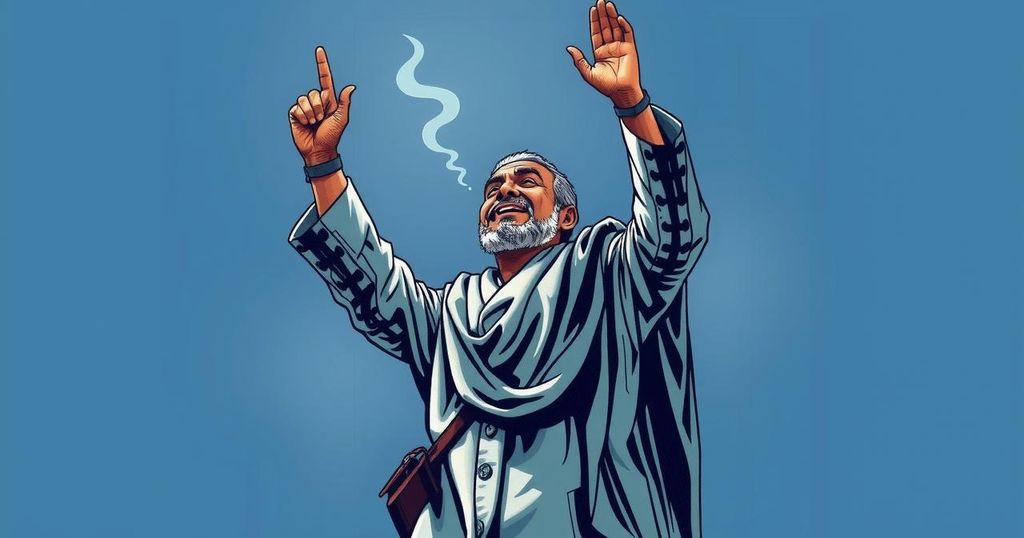Yamandú Orsi won the Uruguay presidential election, defeating Álvaro Delgado by over three percentage points. His victory returns the Broad Front to power after five years of conservative rule. Orsi emphasized inclusivity and economic stability, and the transition to his administration will begin on March 1. The election results contrast with political divisions seen in other Latin American countries.
Yamandú Orsi has emerged victorious in the recent presidential election of Uruguay, representing the left-wing Broad Front coalition. Orsi secured a notable win against Álvaro Delgado, the candidate from the governing conservative coalition, by a margin exceeding three percentage points in the run-off held on Sunday. Following the election, Delgado publicly conceded and extended his congratulations to Orsi and his coalition, marking a significant political shift as the Broad Front returns to power after five years.
The Broad Front previously held power in Uruguay from 2005 to 2020 before being succeeded by the current president, Luis Lacalle Pou. Due to constitutional regulations, President Pou was ineligible to run for a second consecutive term in this election cycle. Orsi, aged 57, is regarded as a distinguished protege of former President José Mujica, known for his emphasis on simplicity and humility, which earned him the title of “the world’s poorest president”. Coming from modest beginnings, Orsi was raised in a rural household without electricity, placing him in touch with the challenges faced by ordinary citizens.
Before his presidential victory, Orsi served as the mayor of Canelones, Uruguay’s second-largest department, where he notably attracted investment from Google for a significant data center project. Throughout his campaign, he emphasized a pro-business approach, stating he would prioritize maintaining a stable tax environment to encourage investment.
In his victory speech, Orsi articulated his commitment to inclusivity, declaring, “I want to be a president for all 3.4 million Uruguayans… I will listen to those who had voted for his rival.” He underscored his aspiration to foster a more united nation, advocating for economic, social, and political integration. Outgoing President Lacalle Pou has indicated his willingness to collaborate with Orsi to facilitate a seamless transition, with Orsi’s inauguration scheduled for March 1 of the coming year.
While Orsi’s Broad Front secured a majority in the Uruguayan Senate, it fell short of achieving a majority in the Chamber of Representatives. Notably, the election results diverged from patterns observed in other nations in the Americas, such as Argentina, Brazil, and the United States, where polarizing divisions have been prevalent in recent electoral contests.
The recent 2023 presidential election in Uruguay marks a pivotal moment in the nation’s political landscape, as Yamandú Orsi, affiliated with the Broad Front coalition, returns the left to power following a five-year conservative governance led by President Luis Lacalle Pou. Orsi’s background as a former history teacher and mayor of Canelones emphasizes his connection to grassroots issues and economic development, exemplified by his role in attracting foreign investment. This election is particularly noteworthy for its contrast to the more divisive electorates in other Latin American countries, reflecting a moderate approach to politics in Uruguay.
Yamandú Orsi’s electoral success indicates a significant shift towards the left in Uruguay’s political framework, as he leads the Broad Front back into power after a five-year conservative administration. His commitment to inclusion and economic stability is poised to shape the nation’s future during his presidency. By calling for national dialogue and collaboration, Orsi aims to govern as a unifying leader, seeking to address the needs and concerns of all Uruguayans, thereby promoting a more integrative and cohesive national identity.
Original Source: www.bbc.com






